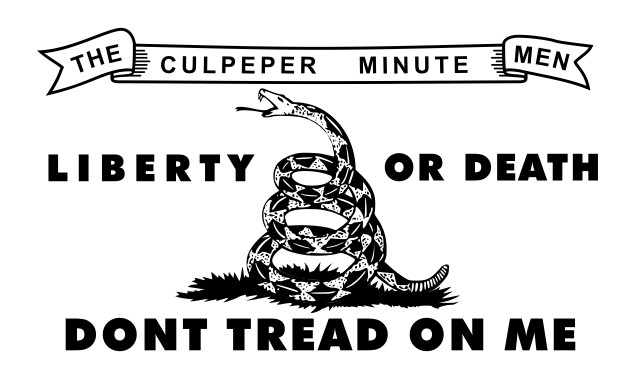A Review of The American Counter Revolution: A Retreat From Liberty, 1783-1800, by Larry E. Tise, Mechanicsburg, Pennsylvania: Stackpole Books, 1999, 634 pages.
A good historian ought to make it clear where he is coming from rather than assume an impossible Olympian objectivity. Then, if he has handled his evidence honestly, he has fulfilled the demands of his craft—whether or not we agree with the interpretation he has placed upon his evidence. Ideally, interpretation should come separately from, and after, presentation of that evidence. Two historians, for instance, may agree that the New Deal was not really very radical a program. One of these may be pleased by this conclusion and the other regret it; both, however, in their honest description have done their job as historians. Their opinion about their finding, of course, is another question. (And as Sir Herbert Butlerfield wisely warned long ago, historians’ opinions can too easily become self-centered moral judgments, even preferences of taste masquerading as moral judgments.)
Larry Tise, by these criteria, is a good historian. He tells us up front (self-indulgently, alas, and at a little more length than necessary) what he is and where he is coming from: a liberal unhappy with what he considers the failed promise of the American Revolution. In the period he has under consideration, he believes that liberty (by which he means feminism and egalitarianism) was repudiated by its friends just as it was about to be realized in practice.
Tise provides us with a rich survey of evidence from America, Britain, Ireland, and France (including its colony of Santo Domingo) concerning shifts in public opinion during the French Revolution. Americans in this period, he believes, “marched from the worship of liberty to the worship of order.” I would interpret what happened and why somewhat differently, but I agree that the phenomena he describes took place. And recognizing that what Tise considers a “reaction” did indeed occur among thinking Americans advances our under-standing beyond the usual superficialities and is therefore welcome, despite the problem of mislabeling.
If only the author did not assume that the natural goal and summum bonum of history is a feminist, multicultural, egalitarian society, then he would have it right. When one believes, however, that multicultural egalitarianism is the appointed end of all human affairs, one must assume some fault, some perverse deviation to be ferreted out to explain why Utopia was not realized at that time. Why did Americans give themselves over to evil—that is, succumb to anti-egalitarian opinions and a preference for order after the War of Independence?
This approach depends, however, on the tacit assumption that when the American revolutionaries proclaimed the cause of liberty and the rights of man, as they certainly did, they meant the same thing by them as did an end-of-the-millennium liberal, or at least a French Jacobin. The catch, of course, is that they didn’t. The “reaction” of opinion and action toward order, including an insistence on patriarchy and homogeneity of citizenship, that followed the American Revolution was not a betrayal of anything—it was merely the normal and natural expression of Americans’ inheritance and experience and the consolidation of their achievements. We need only reflect on what might have ensued had Americans followed the path Tise thinks they ought to have taken: an American Terror, Napoleon, or Santo Domingo? (There was a Napoleon—Alexander Hamilton—waiting in the wings. To think such horrors could not have happened belongs to the same order of thinking as to say that communism did not fail because “true communism” was never tried.)
Americans could have taken no other path than what they chose to take and still remain themselves. They were predominantly serious Christians, and liberals have never understood the problem Christians have with the French Revolution—which itself precluded Jacobinism. Their social fabric and mores were Puritan in New England, acquisitive bourgeois in the Middle States, and a volatile mixture of gentry and Border tribalism in the South. None of this lent itself to the kind of society prized by Professor Tise. Americans’ conception of liberty arose from a solid legal and constitutional tradition and from real experience, not from speculation. It stipulated limited government of a kind not energized to pursue a feminist, multicultural Utopia—a thing that it would never have occurred to them to pursue since the American people, unlike some Frenchmen, well understood that it had never existed in the history of the world, and never could exist. Americans, moreover, had a task before them—civilizing a continental wilderness—that only self-confident Anglo-Celtic males could have been expected to accomplish. It is ungrateful for a later generation, living at ease on their accomplishments, to find fault with them for not being as socially sensitive and noble as we supposedly are.
For Larry Tise, Thomas Jefferson is the greatest villain of all, “the most radical counter-revolutionary” of the period, who provided the emotional and intellectual stimulus for reaction (that is, a preference for self-governing order over egalitarianism). Tise is accurate in this judgment: I salute him for identifying the Jefferson whom I have been celebrating for over 30 years, though in the end he mislabels the great man.
Edmund Burke had it right, as usual. Asked how he could defend the Americans and the Irish while being so adamantly against the French revolutionaries, he explained that there is a difference between the desire for liberty “which arises from Penury and irritation, from scorned loyalty, and rejected Allegiance” and that “which is Speculative in Origin.” The latter, of course, is Jacobinism, then and now.
But take heart, Mr. Historian of the Counter-Revolution! The Jacobinism that the founders of American liberty so wisely rejected is fastened tightly enough upon us now, though its goals of course can never be achieved, only projected into some future when evil reaction will have been overcome. That, really, is a part of its charm.







